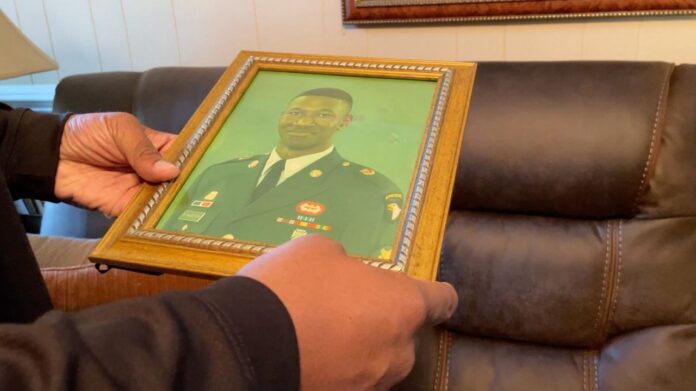SMITHFIELD, N.C. — Vertis Ray Richardson had one goal when he was growing up: to serve his country just like his father.
“When I was a young boy, I said I wanted to go in the Army, and my goal was to do 20 years,” Richardson said. “I actually set a goal of reaching the goal of staff sergeant, and I was able to reach the goal of first sergeant.”
Through his decorated military career, Richardson continued to meet a number of his goals.
But after deployments to both Iraq and Afghanistan, he says his friends and family started to notice changes in his behavior.
It didn’t take doctors long to see the signs of PTSD.
“A lot of people that are in the military and serving now, don’t want to get diagnosed with it because of the stigma, so a lot of people wait until they get out to say something because of the operation tempo,” Richardson said.
A leader in the U.S. Army, Richardson saw his service to his fellow military members was not over.
He began working at his local Disabled American Veterans chapter, and recently joined the Durham VA’s mental health council as a liaison.
“So, if we see something going on, we can help them,” Richardson said. “Whether it’s good or bad, getting everybody in touch with each other and letting them be that voice that needs to be heard.”
The reason Richardson is so invested in veterans mental health isn’t just due to his struggles, but more so those around him.
His father also struggles with a PTSD diagnosis.
In 2021, he lost his ex-wife to suicide after her battle with PTSD from her time serving.
“That kind of hurt and left a void because we have a 22-year-old autistic son, so it registered to me to do more,” Richardson said.
Now as a liaison for the Durham VA, Richardson is helping provide feedback and advice for how their mental health council can reach more veterans.
He says no one should feel alone when they come home.
“Twenty-two veterans a day commit suicide. But it really hit home for me with my ex-wife, because you actually put a name and a face with that number,” Richardson said. “So we do need to get help if you need it. There are things out there, and the hotline is always there. Just reach out to someone and let them know you need help.”
Richardson says the mental health council is looking for more liaisons to help with their coverage.
If you or anyone you know is struggling, the suicide hotline is always available at 988.



